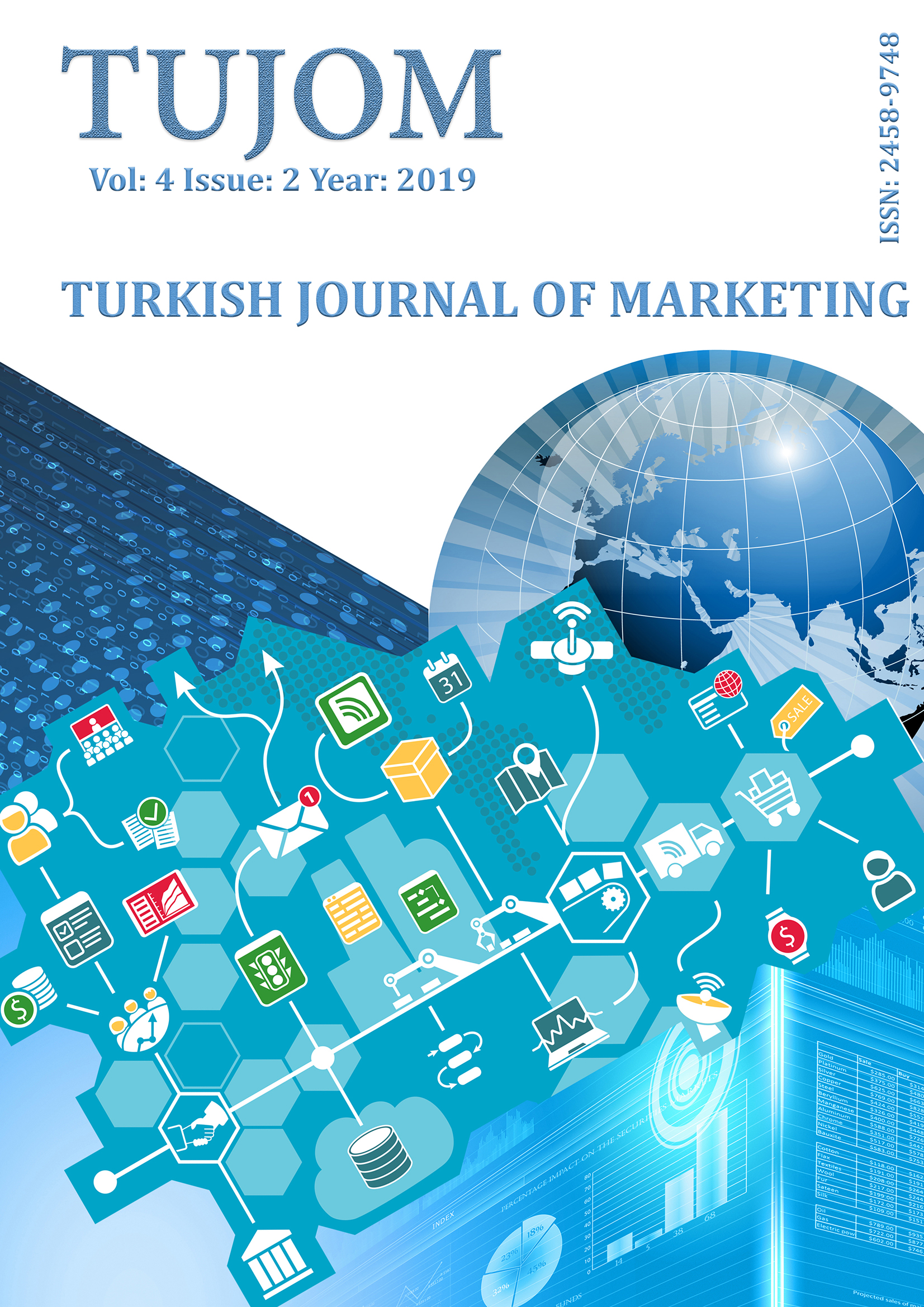Published 09/14/2019
Keywords
- E-governance, Backus?s model & Quantitative perceptions.
How to Cite
Abstract
This study was conducted to determine measures of dispersion for normal distribution of nation brand ranking in line with Backus?s e-governance model adoption. The significance of this study dwells in the quantitative interpretations of Backus?s e-governance model for rebranding African nations. This is an exploratory study, which is based on the emic perspective (author? s viewpoint) built on literature reviewing and inferential statistics. The results show that the probability for investors to select randomly South Africa as business destination P (RSA) is 35%. The mean of top 10 African nation brands being 61.2; South Africa?s brand variance of 156.8; and standard deviation of 5.8 translates better reputation and positioning from the sample (n).
References
Brands and Branding. 2017. Building Customer-Based Brand Equity : What Makes A Strong Brand? How Do You Build A Strong Brand? Available at: http://www.brandsandbranding.co.za/building-customer-based-brand-equity-what-makes-a-strong-brand-how-do-you-build-a-strong-brand/ [Accessed on 29/09/2017].
DW. 2019. Germany replaces USA as country with best international image. Available at: https://www.dw.com/en/germany-replaces-us-as-country-with-best-international-image/a-41407751 [Accessed on 05/06/2019].
Estonia E-Governance Academy (2017). Yearbook 2017. [online] Available at: https://ega.ee/wp-content/uploads/2018/01/ ega_aastaraamat2017_digital-ENG.pdf [Accessed on 05/05/2019].
Financial Director. 2019. Public Sector Branding: Ignore it at your peril. Available at: https://www.financialdirector.co.uk/2013/05/09/public-sector-branding-ignore-it-at-your-peril/ [Accessed on 12/05/2019].
Harwich, E. 2017. AI could transform the way governments deliver public services. Published in The Guardian (8 February 2017). Available at: https://www.theguardian.com/public-leaders-network/2017/feb/09/artificial-intelligence-robots-transformgovernments-public-services-japan-uk-singapore [Accessed on 02/05/2019].
How we made it in Africa. 2019. Which African countries have the strongest ?nation brands?? Available at:
https://www.howwemadeitinafrica.com/which-african-countries-have-the-strongest-nation-brands/17054/ [Accessed on 21/06/2019].
Laerd Statistics. 2019. Standard deviation. Available at: https://statistics.laerd.com/statistical-guides/measures-of-spread-standard-deviation.php [Accessed on 24/06/2019].
Quora. 2019. Why is inferential statistics important? Available at: https://www.quora.com/Why-is-inferential-statistics-important [Accessed on 06/07/2019].
The World Bank. 2017. Promoting e-Governance ? The SMART Way Forward. Available at: http://arc.gov.in/11threp/arc_11threport_ch2.pdf [Accessed on 26/09/2017].
The World Bank. 2016. World Development Report 2016: Digital Dividends. Available at: http://www.worldbank.org/ en/publication/wdr2016 [Accessed on 20/05/2019].
UN e-governance Survey, 2018. UN E-Government Survey 2018. Available at: https://publicadministration.un.org/egovkb/en-us/Reports/UN-E-Government-Survey-2018 [Accessed on 06/07/2019].
United Nations. 2018. High-Level Political Forum 2018. Available at: https://sustainabledevelopment.un.org/hlpf/2018 [Accessed on 05/06/2019].
United Nations. 2018. World Resources Institute, 2017; The World Bank, 2016.
UNDESA. 2017. Guides on Lessons for Open Government Data Action Planning for Sustainable Development. Available at: http://workspace.unpan.org/sites/Internet/Documents/UNPAN97913.pdf [Accessed on 07/05/2019].
UNDESA. 2018. Working Together: Integration, institutions and the Sustainable Development Goals. World Public Sector Report 2018. Division for Public Administration and Development Management. New York. April.
World Economic Forum. 2018. The Global Risk report 2018. Available at: https://www.weforum.org/reports/the-globalrisks-report-2018 [Accessed on 02/06/2019].
World Resources Institute. 2017. How Artificial Intelligence Helped Us Predict Forest Loss in the Democratic Republic of the Congo. Available at: http://www.wri.org/blog/2017/07/how-artificial-intelligence-helped-us-predict-forest-lossdemocratic-republic-congo [Accessed 30/04/2019].


